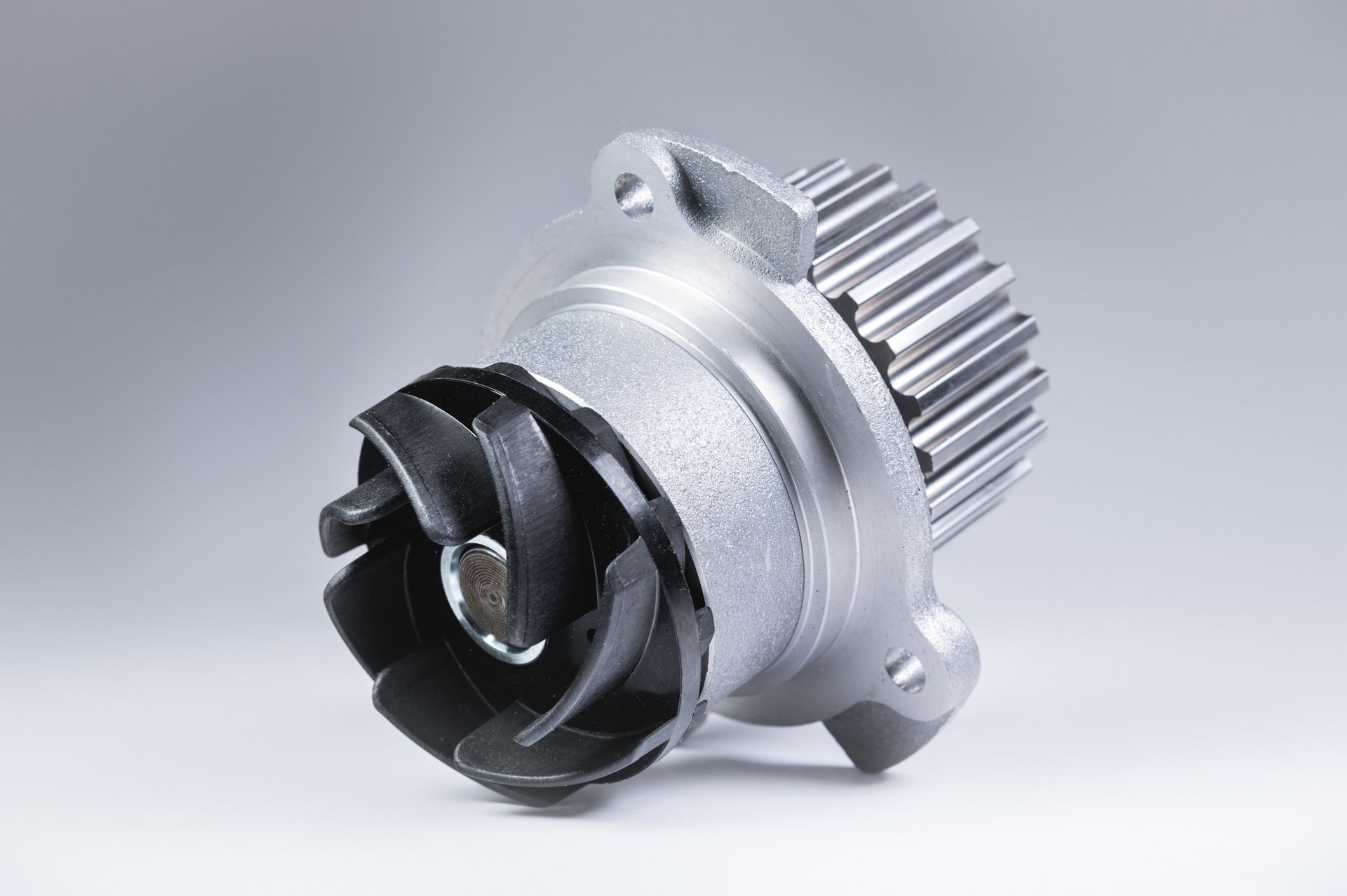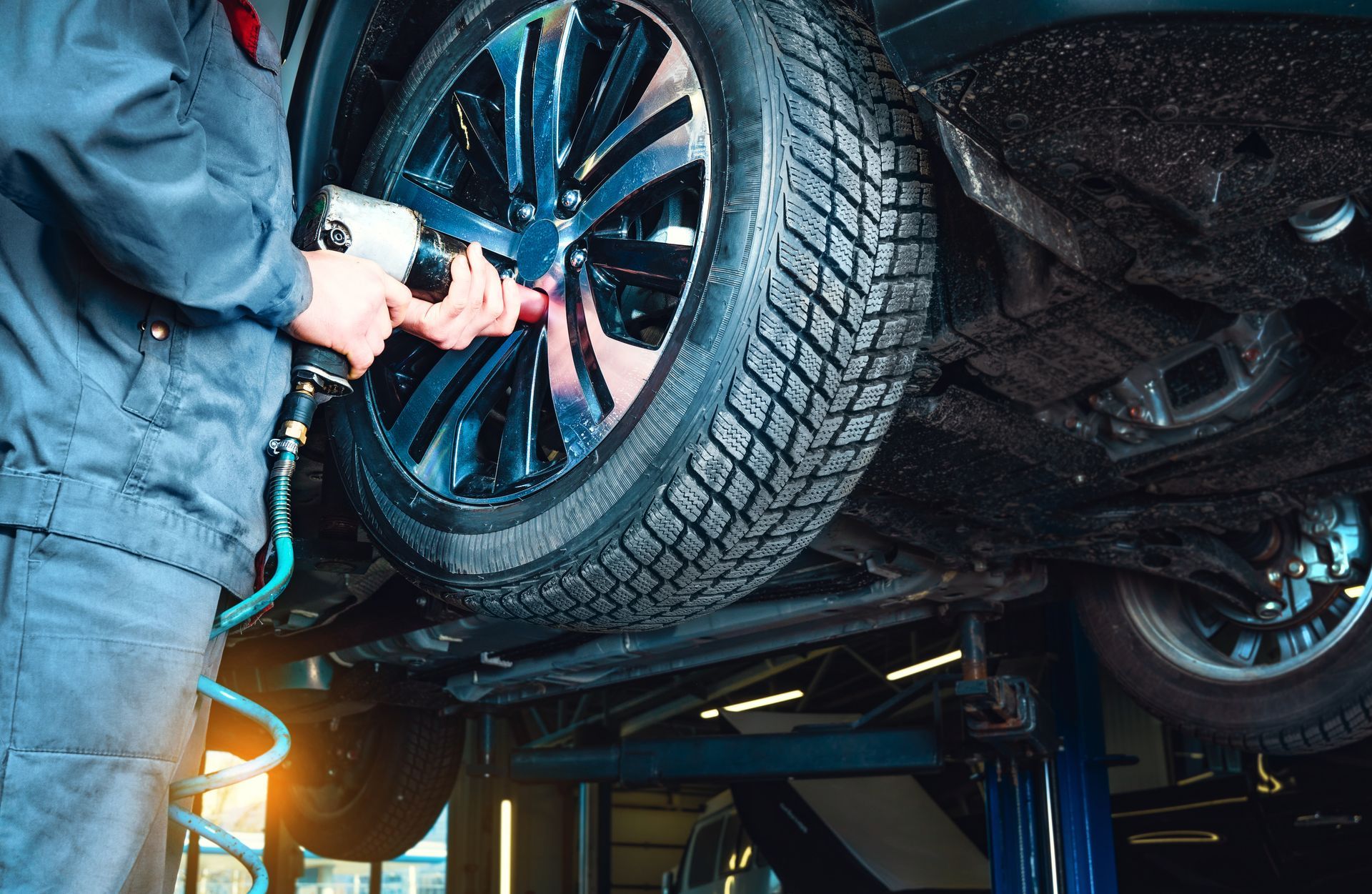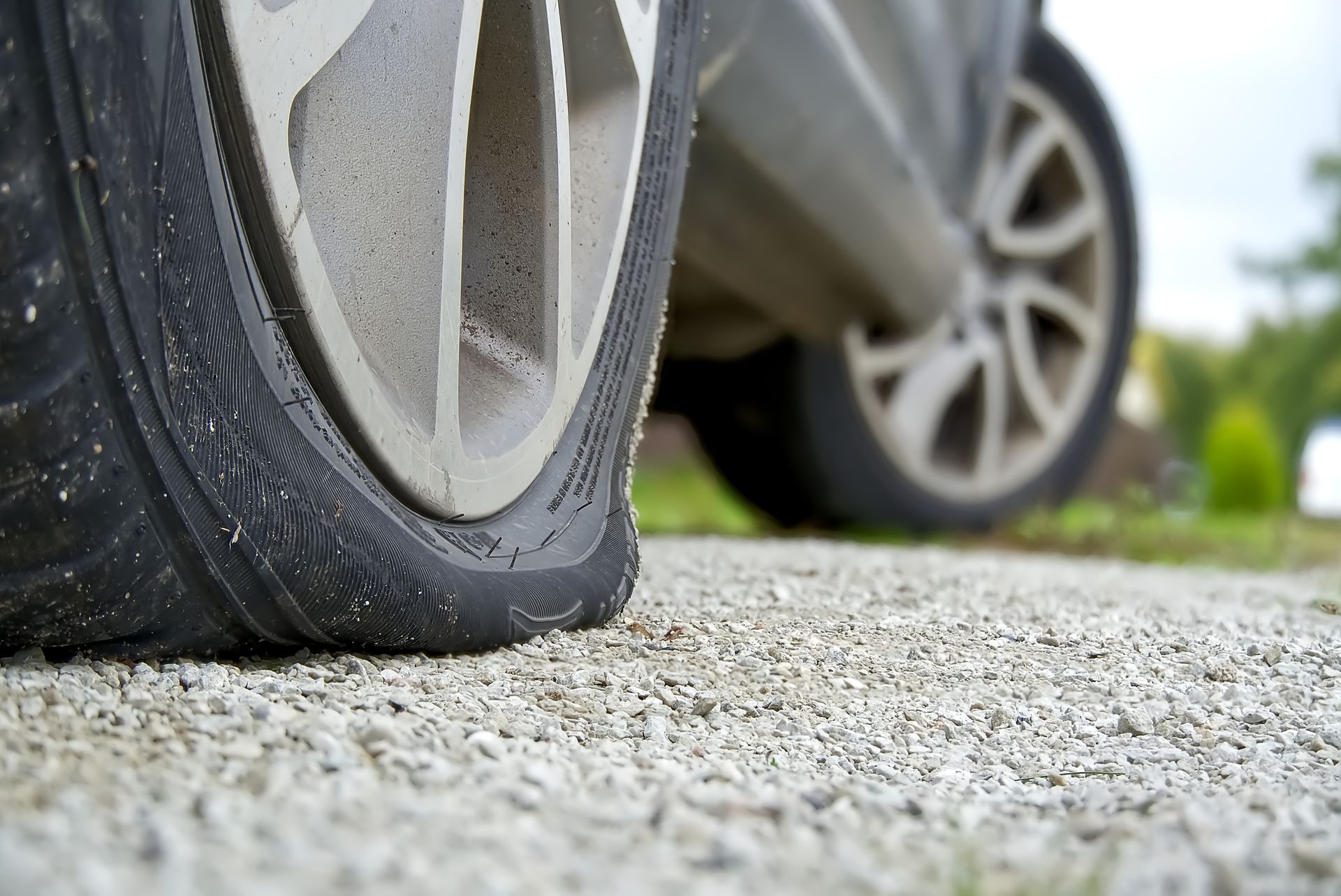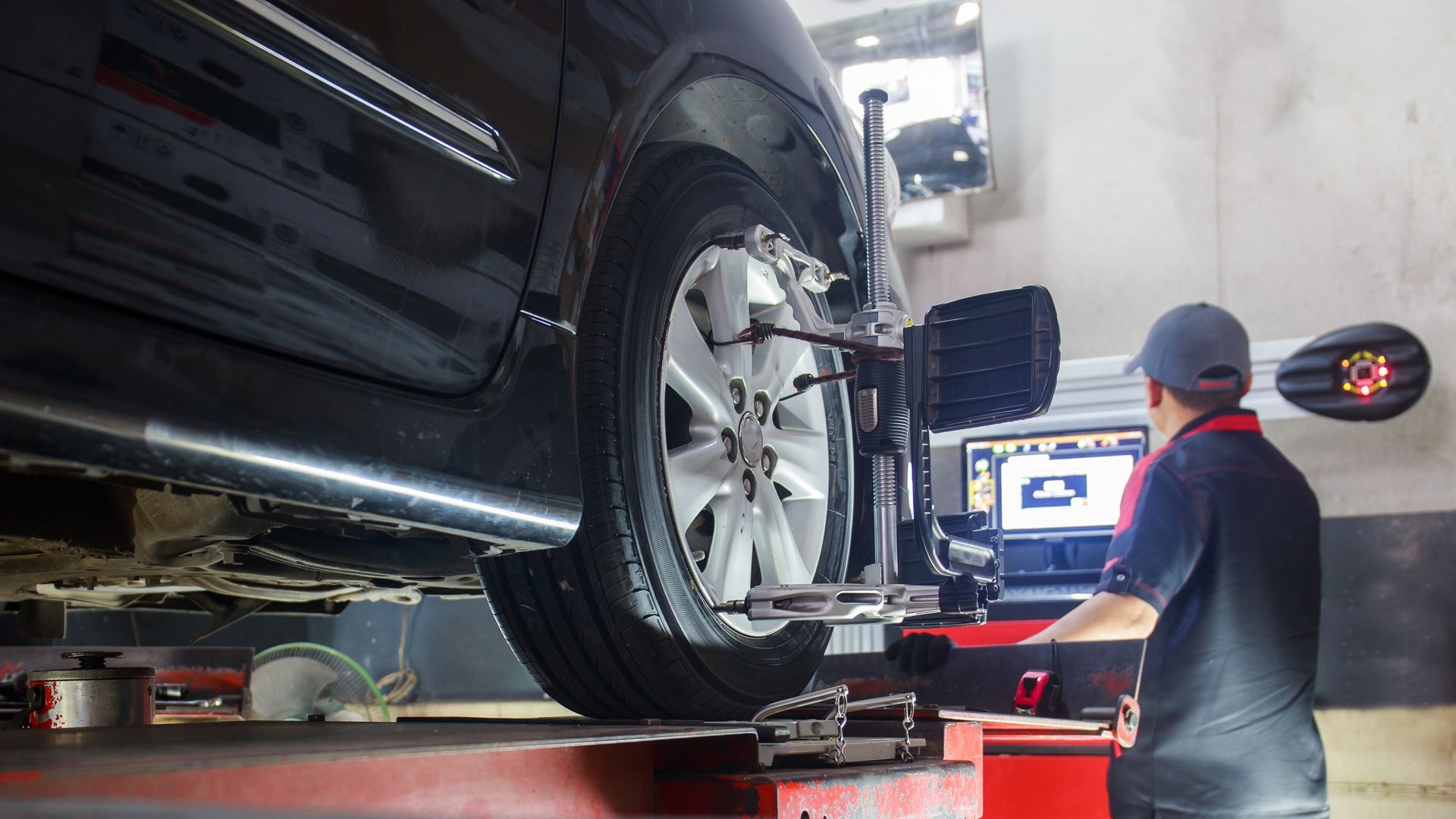Tires are the only part of your vehicle that makes direct contact with the road. Their condition directly affects traction, braking, fuel efficiency, and overall safety. While many drivers pay close attention to oil changes or brake services, tire health is often overlooked. Continuing to drive on old or worn tires may seem harmless at first, but it can lead to dangerous situations and expensive consequences.
How to Tell If Tires Are Too Old
Even if a tire has good tread depth, age is a factor. Over time, rubber hardens and loses flexibility. Exposure to heat, UV rays, and road chemicals accelerates this process. Most tire manufacturers recommend replacement every six years, regardless of tread condition, with ten years being the maximum safe lifespan. Signs of aging include small cracks on the sidewalls, stiffness when driving, or vibration at highway speeds.
The Risks of Worn Tread
Tread depth determines how well your tires grip the road, especially in rain. As tread wears down, your stopping distance increases and hydroplaning becomes more likely. In Georgia, where sudden summer storms are common, tires with shallow tread are especially dangerous. Legally, the minimum tread depth is 2/32 of an inch, but experts recommend replacing it closer to 4/32 for safer wet-weather handling.
Impact on Fuel Economy and Performance
Driving on old or worn tires doesn’t just affect safety, it also hurts efficiency. Tires with uneven or shallow tread often roll less smoothly, causing your engine to work harder. This can lower gas mileage and make steering feel less responsive. You may notice your vehicle pulling to one side, vibrating at certain speeds, or feeling sluggish in corners. These are all indicators that the tires are past their prime.
Why Tire Blowouts Are a Serious Threat
One of the biggest risks of worn tires is blowouts. When the tread is thin or the rubber is weakened with age, the tire is more likely to fail under stress. High summer temperatures in Georgia make this risk worse, as hot pavement raises tire pressure and adds stress to weakened rubber. A blowout at highway speed can cause you to lose control, putting you and others in danger.
The Cost of Waiting Too Long
Replacing tires before they fail is always less expensive than dealing with the aftermath of an accident or emergency repair. A blown tire may damage the wheel, suspension, or fender. If a loss of control causes a collision, repair bills can quickly exceed the cost of a new set of tires. Investing in replacement at the right time saves money and avoids stress in the long run.
When to Replace Tires for Peace of Mind
Knowing when to replace your tires is part of responsible car ownership. Beyond checking tread depth and age, look for bulges, sidewall cuts, and uneven wear patterns that indicate suspension or alignment issues. A quick tire inspection every few months helps you stay ahead of problems. Rotating tires regularly and maintaining proper inflation also extends their lifespan, but eventually replacement is unavoidable.
Stay Safe on Georgia Roads With D.W. Campbell Tire & Service
If your tires are showing signs of age or wear, don’t take the risk of driving on them any longer. At D.W. Campbell Tire & Service in Marietta, Kennesaw, and Woodstock, we carry a wide selection of quality new tires and provide professional installation and balancing. Our team can also inspect your current tires, check alignment, and make recommendations that keep your vehicle safe and efficient.
Schedule your tire service today and drive with confidence, knowing your vehicle is equipped for every mile ahead.
Visit one of our D.W. Campbell Tire & Service locations:
Cobb Pkwy
1930 Cobb Parkway Southeast, Marietta, Georgia 30060
Powers Ferry
1291 Powers Ferry Road Southeast, Marietta, Georgia 30067
Professional Way
1906 Professional Parkway, Woodstock, Georgia 30188
Busbee Pkwy
2970 George Busbee Parkway Northwest, Kennesaw, Georgia 30144
Canton Rd
3330 Canton Road, Marietta, Georgia 30066






